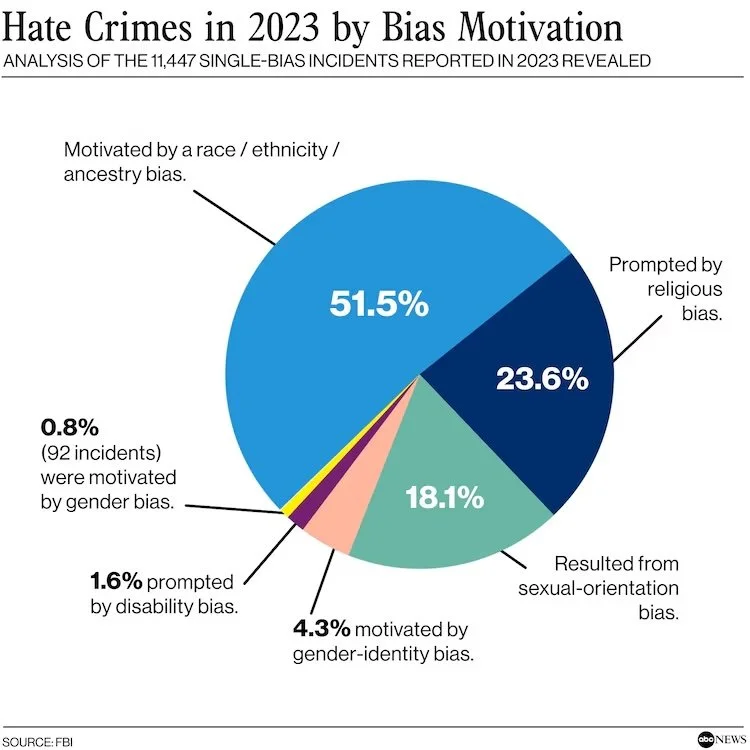A new era of risk.
Our new reality.
The Urgent Need for New Kinds of Protection
In an era marked by escalating hate crimes and domestic extremism, the imperative for proactive, community-focused security solutions has never been more critical.
A Surge in Hate Crimes
Recent data underscores a troubling rise in hate-fueled violence across the United States:
The FBI reported 11,862 hate crime incidents in 2023, a notable increase from previous years, with 52.5% motivated by race/ethnicity and 22.5% by religion.
Antisemitic incidents have reached unprecedented levels. In 2024, the Anti-Defamation League (ADL) documented 9,354 cases of antisemitic assault, harassment, and vandalism—a nearly 900% increase over the past decade.
Islamophobic violence is also on the rise, with numerous high-profile attacks targeting Muslim, Arab, and Palestinian Americans.
These statistics reflect a broader trend of increasing hostility toward marginalized communities, necessitating comprehensive security measures.
Diminishing Federal Focus on Domestic Extremism
Compounding the issue, federal resources dedicated to countering domestic terrorism are being scaled back:
The FBI has reduced staffing in its domestic terrorism office and discontinued a tool used to track such investigations, potentially undermining efforts to counter white supremacist and anti-government extremist threats.
The Department of Homeland Security (DHS) has terminated 30% of personnel leading terrorism prevention work, raising concerns about the government’s commitment to addressing domestic threats.
These reductions occur despite warnings from experts about the persistent and lethal threat posed by domestic violent extremists.
The Role of White Noise Security Consulting
In this context, White Noise Security Consulting emerges as a vital resource for communities seeking to safeguard themselves against escalating threats.
We provide:
Strategic Security Planning: Developing comprehensive strategies tailored to the unique needs of each community.
Training and Coordination: Offering training programs and coordination efforts to ensure preparedness and resilience.
Proactive Threat Assessment: Identifying potential risks and implementing measures to mitigate them before incidents occur.
Our approach emphasizes empowerment over fear, focusing on building resilient communities through informed and strategic action.
In a time when traditional support structures are retracting, White Noise Security Consulting stands ready to fill the gap, offering the expertise and dedication necessary to protect and empower vulnerable populations.




